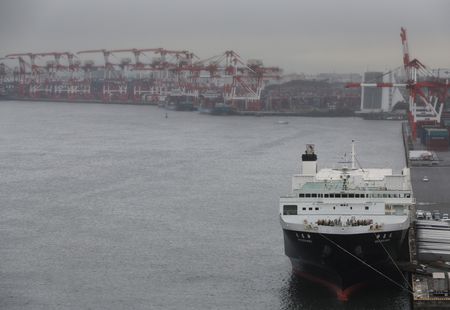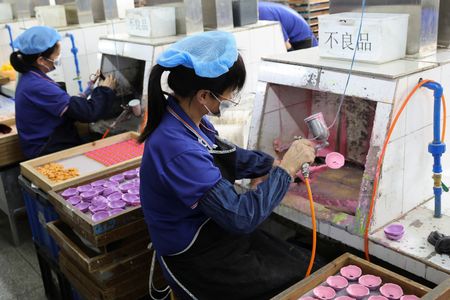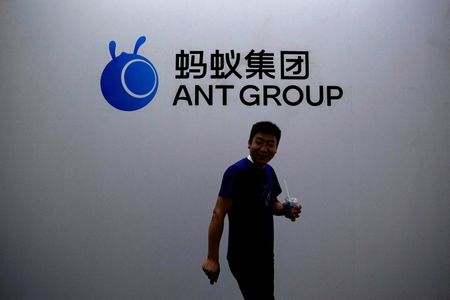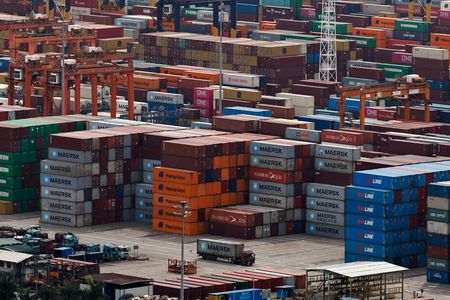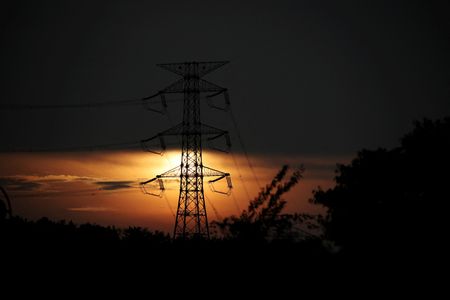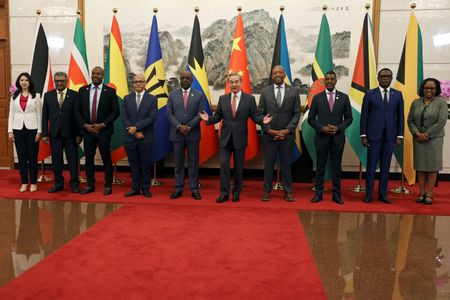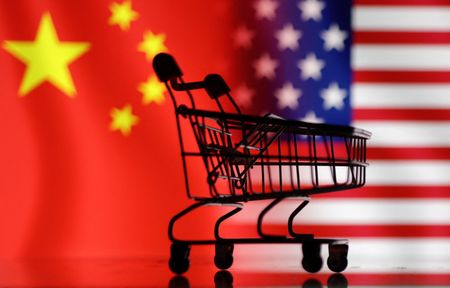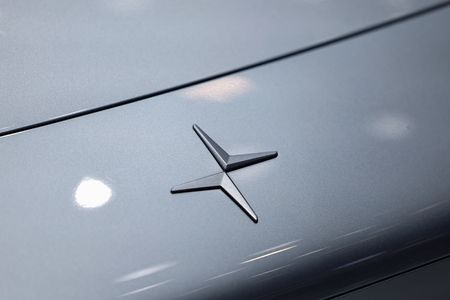By Leika Kihara and Makiko Yamazaki
TOKYO (Reuters) -Japanese Prime Minister Shigeru Ishiba on Monday signalled that increasing corn imports from the U.S. would be among options in trade negotiations with Washington, but warned Japan would never sacrifice its agriculture industry to win lower auto tariffs.
Japan has made little headway in two rounds of trade talks with the U.S. as it seeks exemptions from U.S. tariffs, including a crippling 25% tariff on its mainstay automobiles.
During the first round of talks last month, U.S. negotiators brought up automobiles and rice as areas where they said Tokyo puts up market barriers.
Agreeing to buy more corn is a less controversial option for Japan than increasing rice imports, as Ishiba’s ruling Liberal Democratic Party (LDP) relies heavily on rice farmers’ support in elections.
Speaking in parliament, Ishiba repeated that Japan won’t sacrifice the domestic agriculture industry for the sake of winning U.S. tariff concessions for automobiles.
“Still, Japan can use corn not for consumption but for use as ethanol fuel. Usage as biomass would be in Japan’s national interest,” Ishiba said, adding that Japanese soil was not necessarily suited for corn production anyway.
“We hope to deepen discussion on whether to use corn for consumption or energy,” Ishiba said without elaborating.
The U.S. exported $2.8 billion worth of corn to Japan in 2024, to counter an 80% drop in exports to China.
Speaking at the same parliamentary session, Japan’s top trade negotiator, Ryosei Akazawa, said he won’t waver in his demand for the U.S. to eliminate all the tariffs imposed by the Trump administration.
The remarks came as Japan seeks to arrange a third round of bilateral ministerial-level trade talks later this month, which could be influenced by a deal reached between the U.S. and China to slash “reciprocal” tariffs.
Japan may also propose offering the U.S. technical cooperation in shipbuilding, two sources with knowledge of the negotiations said, confirming earlier reports by domestic media.
Japanese policymakers and ruling party lawmakers have said they see no merit in striking a deal with the U.S. unless a 25% tariff on automobile imports are lifted, given the huge impact the industry has on Japan’s export-heavy economy.
The impact is already evident in Japan’s automobile sector. Mazda reported a 45.1% drop in net profits for the fiscal year that ended in March, and held off on disclosing earning estimates for the current year through March 2026.
On April 2, U.S. President Donald Trump imposed a 10% tariff on all countries except Canada, Mexico and China, along with higher tariff rates for many big trading partners, including Japan, which faces a 24% tariff rate starting in July unless it can negotiate a deal with the U.S.
(Reporting by Leika Kihara and Makiko Yamazaki; additional reporting by Kentaro Sugiyama; Editing by Michael Perry)

